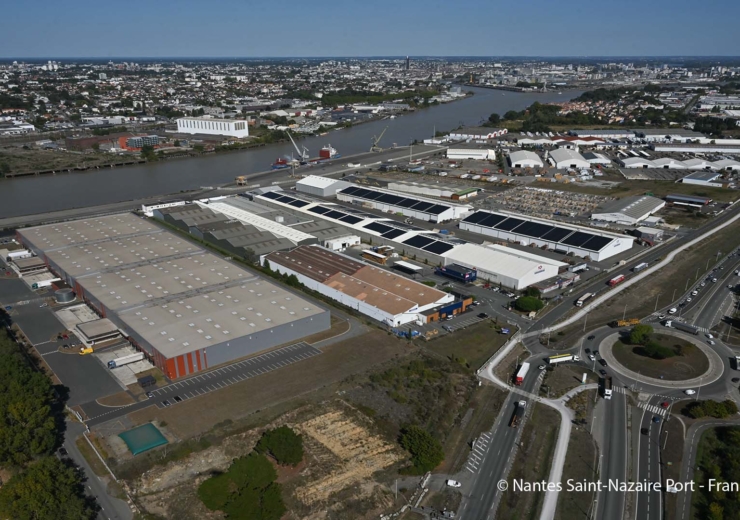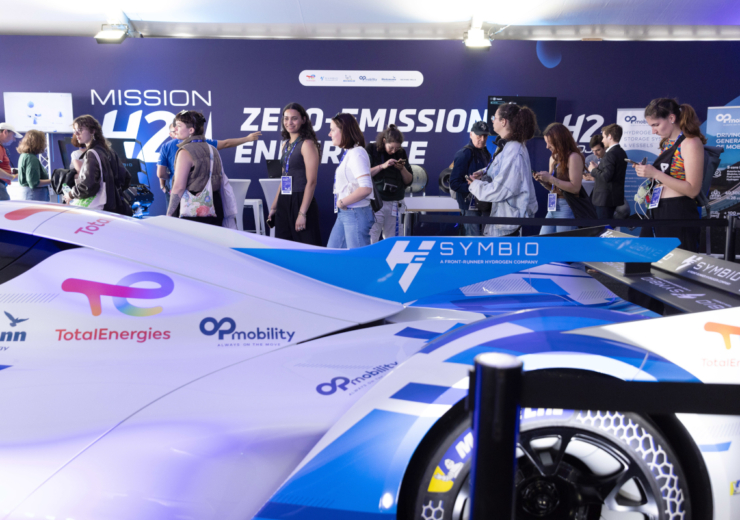In the face of the new challenges posed by climate change, local and regional authorities are investing in renewable energies more than ever before. Atlantic France is no exception, and the region is moving virtuously in the direction of green hydrogen.
Among the most energy-intensive sectors, mobility ranks 2nd behind the building industry, and 1st in terms of greenhouse gas emissions. The SyDEV (the Vendée Department Energy and Equipment Syndicate), Vendée Energie, and the city of Les Sables d’Olonne are working to address this issue with the inauguration of a multi-energy station.
A new hydrogen station up and running in Les Sables d’Olonne
The multi-energy station deployed by SyDEV and Vendée Énergie, inaugurated on Friday the 12th of May 2023 in Les Sables d’Olonne, offers in a single location the distribution of three green energies, all of which are produced locally and in a short circuit, to promote low-carbon mobility:
- Green hydrogen produced by Lhyfe in Bouin (the first site to produce renewable, environmentally-friendly hydrogen, thanks to its connection to Vendée Energie wind turbines, which are no longer covered by the feed-in tariff),
- BioNGV (Natural Gas for Vehicles) from methane plants on farms in the département (the government’s target is 10% by 2030). 10% of the gas in the Vendée gas networks is already biomethane, as it was manually injected into the system.
- Green electricity from photovoltaic power plants on the ground (on former landfill sites), on roofs, and on shaded car park areas belonging to Vendée Energie.
- Located close to a busy road (RD 160), this new facility will strengthen the network of hydrogen distribution stations in Atlantic France, helping to develop the sector among users.
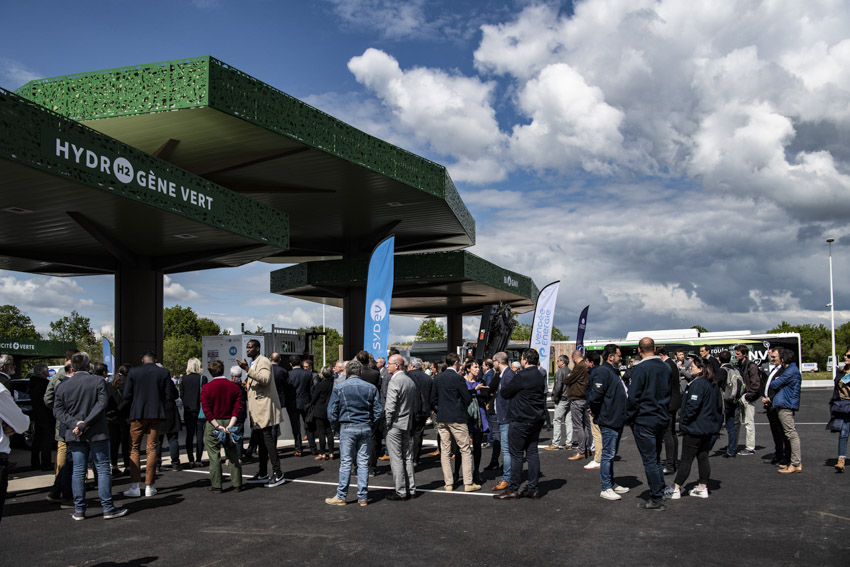
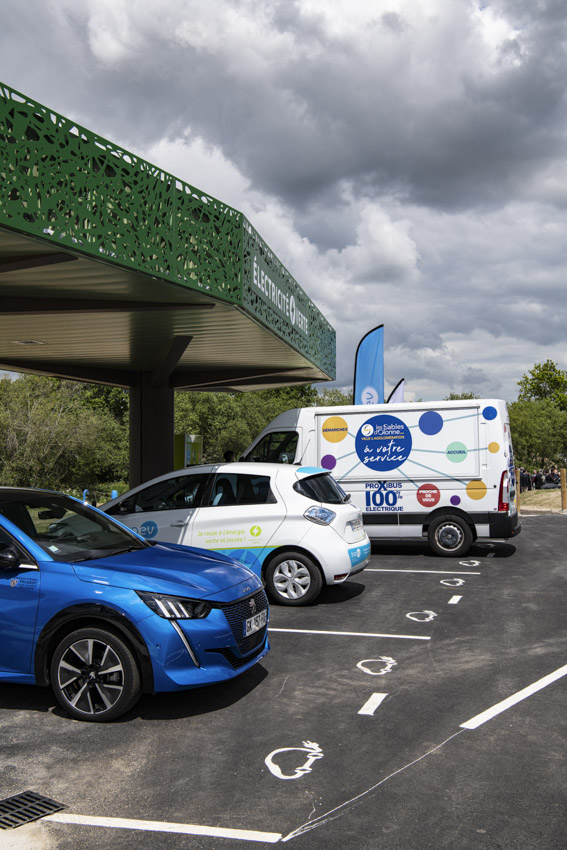
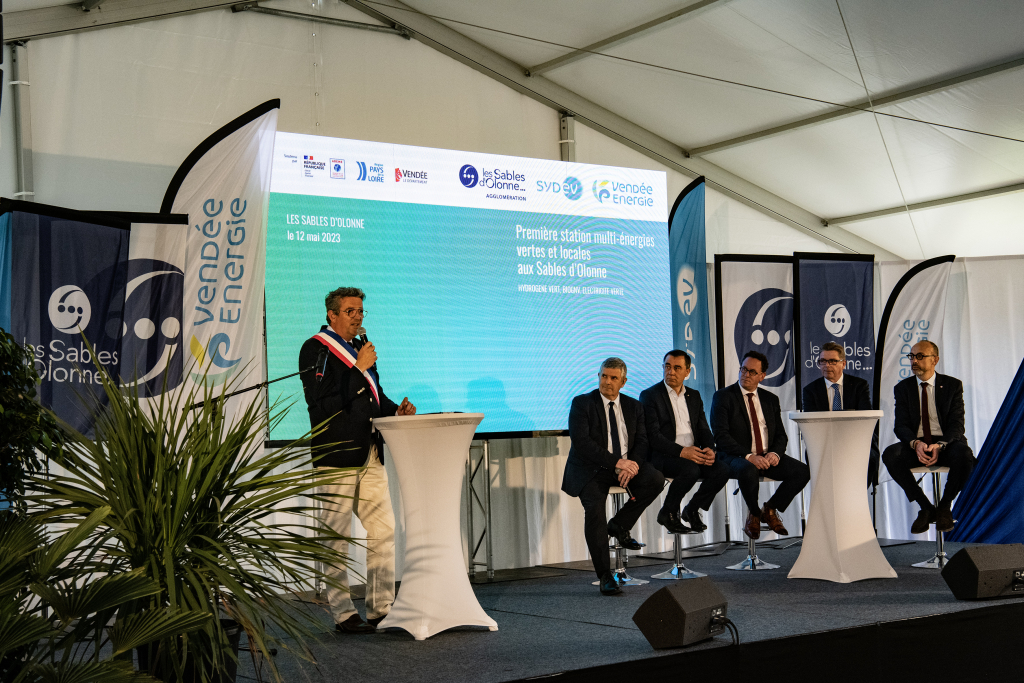
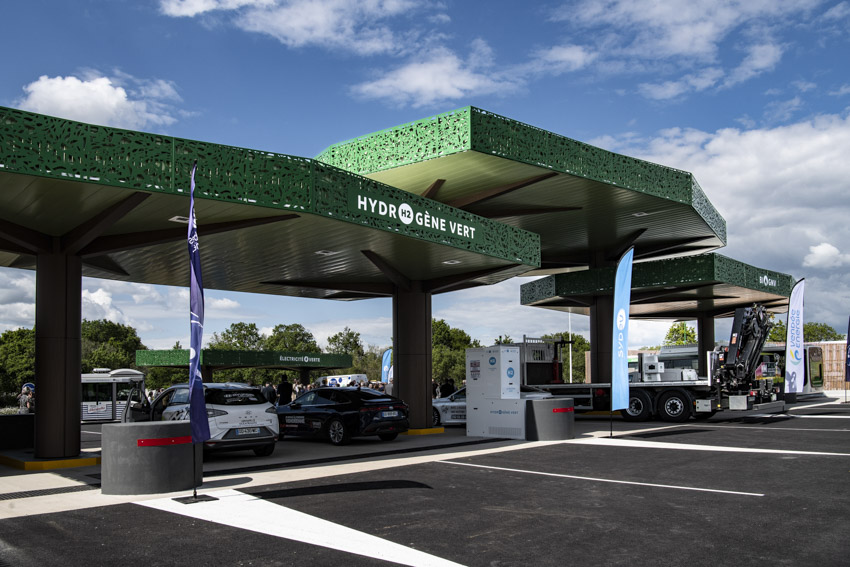
Green hydrogen yes, but for what uses?
In the multi-energy station, hydrogen is produced locally from renewable energies, reducing CO2 emissions by more than 80% compared with diesel. The main advantage of hydrogen is that it emits no pollutants, just water, which makes hydrogen-powered vehicles silent and therefore particularly suited to urban centres. Hydrogen mobility therefore offers similar advantages to electric mobility and it also complements it when used heavily or intensively, as the use of heavy and cumbersome batteries is limited.
To cater to these two types of mobility, the hydrogen dispenser at the multi-energy station has 2 nozzles:
- 700 bar suitable for heavy goods, passenger, and waste vehicles
- 350 bar for light, heavy-duty use vehicles
The development of infrastructures such as these will enable more hydrogen mobility projects to be launched in Atlantic France. They are essential infrastructures and are set to multiply over the coming years.
Find out more about the key hydrogen projects in Atlantic France.


 Français
Français 
